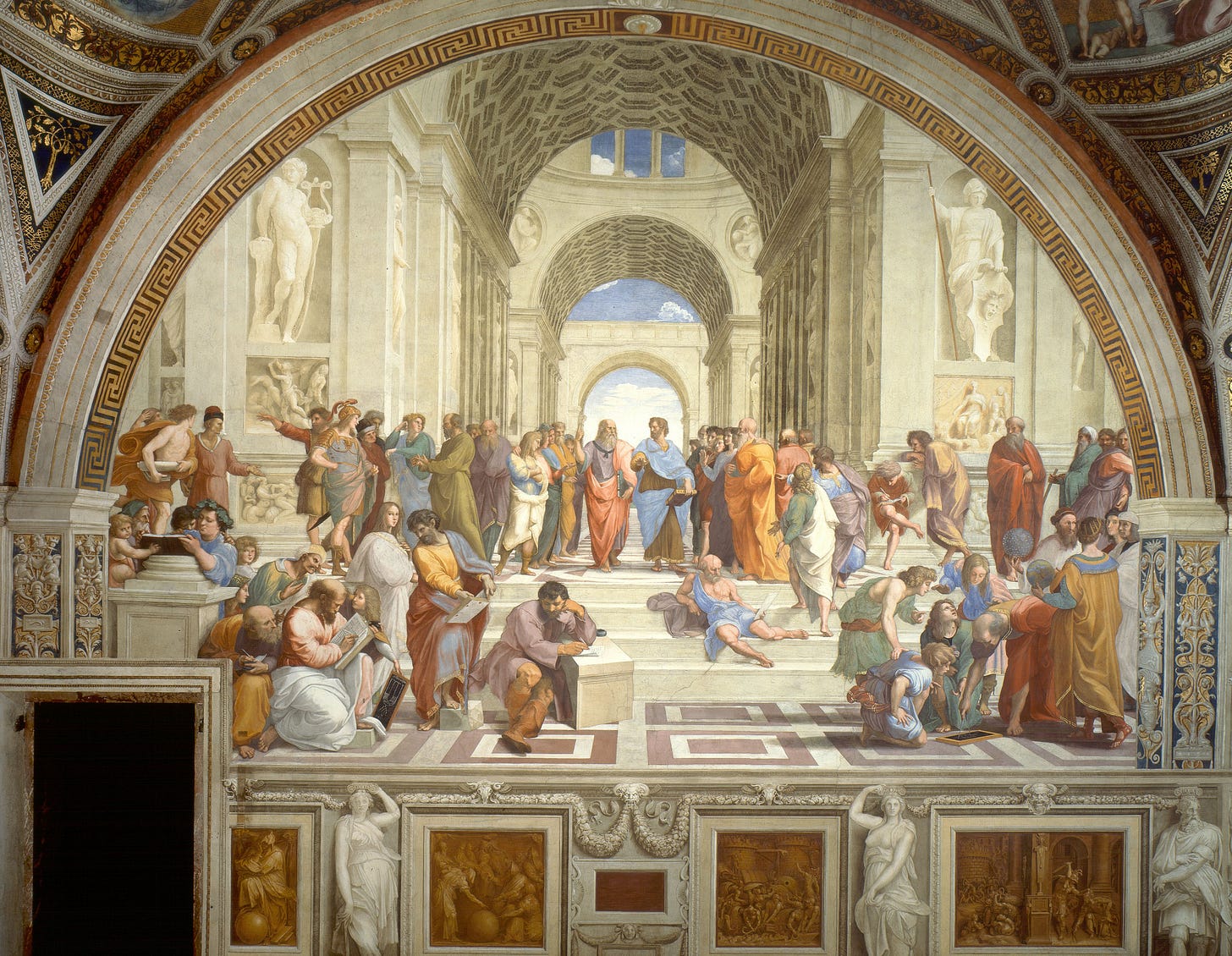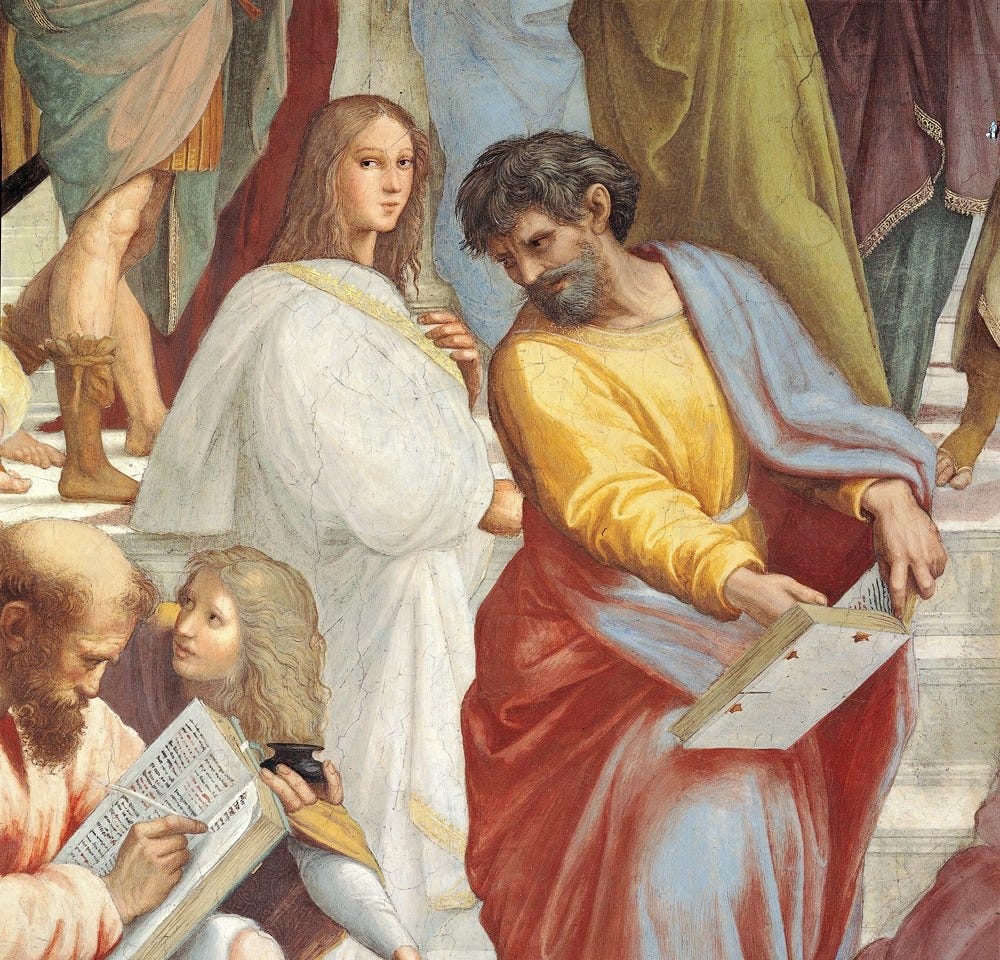The Curse of Prometheus, the Gift of Curiosity
In defense of curiosity and the will to move forward.
And the world still punishes those who light the fire.
In the beginning, there was only cold.
The gods kept their fire high on Olympus, where mortals could see the glow but never touch it. Humans stumbled through the dark: obedient, ignorant, easily ruled. That’s how Zeus liked it. He held the fire, and with it, the power.
Prometheus watched.
A Titan by birth, but something else by instinct: restless, curious, subversive. He looked at humanity and saw more than clay. He saw potential. So he made a choice.
One night, he climbed the sacred mountain and stole the gods’ fire.
Not just flame, but what it symbolised: knowledge, invention, defiance, change. He smuggled it down in a fennel stalk and placed it in human hands. We learned to cook, to forge, to dream. To build. To ask why. And that was the real crime.
The first punishment for curiosity
Zeus wasn’t angry about the fire. He was angry about what it unleashed. He feared a world where humans no longer begged for warmth, but made it themselves. A world where they questioned. Innovated. Disobeyed.
So he struck Prometheus down.
He chained him to a rock at the edge of the world, where an eagle came each day to feast on his liver. It grew back each night, so the punishment would never end.
Why? Because the gods feared the fire would never die. They were right.
But fire spreads
Prometheus was the first. He wasn’t the last. Every era finds its firestarters. Those who see too far, speak too clearly, or ask questions too dangerous to ignore. And every era finds its eagles.
Galileo Galilei — The telescope heretic
Galileo (1564-1642) didn’t invent the telescope. He turned it toward the heavens and wrote down what he saw. Mountains on the Moon. Moons around Jupiter. Phases of Venus. The Earth, it turned out, was not the center of anything. The cosmos didn’t revolve around us, and that meant, perhaps, neither did God.
He published his findings, not in secret, but boldly and in Italian so the common people could read them. He dismantled centuries of belief not through rebellion, but through observation. But truth, when it contradicts power, becomes dangerous. The Church demanded he recant. He refused, until they threatened him with torture.
Galileo was silenced, but not broken. Confined to his home, he whispered the words that would outlive him: “Eppur si muove!” (And yet it moves!) His telescope cracked the sky open. From the shards came a flood of new thinking that no decree could stop.
Hypatia of Alexandria — The philosopher who taught too much

In a world where women were expected to remain silent, Hypatia stood and spoke. As a philosopher, mathematician, and astronomer in 4th-century Alexandria, she taught in public spaces where few women were even permitted to learn. She welcomed students of all backgrounds (men and women, pagans and Christians) and guided them through the workings of the stars, the logic of numbers, and the power of reasoned thought.
She dressed in the robes of a scholar, not the silks of a wife. She refused marriage, not out of rejection, but because her life was devoted to inquiry. In an age when knowledge was becoming a weapon of control, she made it a tool of liberation. Teaching women to think for themselves, and men to question what they assumed was true. Her very presence in the public square was a provocation.
It was too much. One day, a mob incited by religious authorities dragged her from her chariot. They stripped her, beat her with tiles, and burned her body.
But her flame endured in every student she lit with reason.
Malala Yousafzai — The girl who dared to learn
She began with a diary. At eleven, Malala Yousafzai wrote anonymously for the BBC about life under Taliban rule in Pakistan. Her words were simple, clear, and dangerous. She described her longing to go to school and her refusal to stop learning.
The Taliban tried to silence her with a bullet. They boarded her school bus and shot her in the head. She survived. At seventeen, with a scarf over her head and fire in her voice, she stood before the United Nations and said that education was a weapon more powerful than any gun.
They tried to kill her curiosity. Instead, they made her global. Today she fights not only for girls’ education, but for the idea that knowledge belongs to everyone, not just the safe, the powerful, or the approved. Her fire burns in classrooms around the world.
What fire looks like now
We think we’ve evolved past punishment. But the eagle is still here. It comes as mockery, shadowbanning, legal threats, polite exclusion, career destruction. And yet, people still climb the mountain. Still ask the dangerous questions.
Today’s firestarters are working at the edge of what is acceptable, asking things that seem absurd or offensive or unthinkable. Until they’re not.
Can artificial intelligence become conscious?
Not just useful, but self-aware. Engineers like Blake Lemoine have raised the alarm. Philosophers like David Chalmers are taking it seriously. Organisations are already debating whether AI deserves rights. The flame is lit.Can we abolish prisons?
Activists like Angela Davis and groups like Critical Resistance are arguing that punishment doesn’t equal justice. They offer a vision of rehabilitation, prevention, and transformation.Should borders exist at all?
Scholars and activists argue that freedom of movement is a human right. Movements like No One Is Illegal challenge the legitimacy of border violence.Economists explore a world of open migration.
It feels radical, because we forget how recent our maps really are.Is universal basic income the answer to poverty?
Organisations like GiveDirectly are proving that no-strings-attached money can work. Pilot programs in Kenya, Canada, and the US show better health, education, and autonomy.Can psychedelics heal trauma?
Banned and stigmatised for decades, psychedelics are now showing extraordinary promise for mental health. MAPS, Johns Hopkins, and other research bodies are leading the way.Can we eat meat without killing animals?
Lab-grown meat is no longer theory. It’s on plates. Companies like Upside Foods and Eat Just have produced it. It threatens industry, identity, and empire. That’s why it hasn’t caught fire yet: but it will.Will climate change force us to rethink capitalism itself?
and groups like Extinction Rebellion are asking if the root problem isn’t carbon, but consumption.
Degrowth, climate justice, Indigenous land ethics. These are not fringe anymore. Thinkers like
These are the strange flames of our moment. They sound ridiculous, threatening, offensive.
So did the heliocentric model. So did women’s suffrage. So did (and unfortunately still does) the idea of racial equality.
The future always begins as heresy.
So yes: Prometheus was right
And so were those who followed.
They were punished because they were early. They were mocked because they were true. They were feared because they handed fire to others.
You don’t need to be burned at the stake to feel the heat.
Today, they exclude. They discredit. They say, “This is not how things are done.” Good. Let them.
Because curiosity isn’t polite. It doesn’t beg for permission. It climbs the mountain, steals the fire, and passes it on.
Steal the fire
So when the next strange idea appears. The one that seems ridiculous, dangerous, or simply too far ahead: pause before you dismiss it. Stay curious. History is thick with people we laughed at before we understood them, exiled before we read them, punished before we thanked them. The future rarely arrives polished or easy to accept. It shows up messy, unfinished, often carried by those who do not look or sound the way we expect.
If we are to be more than guardians of the past, we must resist the urge to judge too quickly. Let curiosity be more than a search for answers. Let it be a way of seeing.
A patience with the unfamiliar.
A willingness to listen before deciding what is true.
Because the fire is coming again. It always does. The only question is whether we will recognise it… or try, once again, to put it out.








